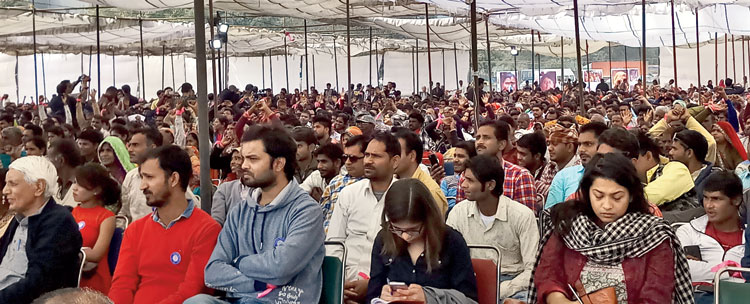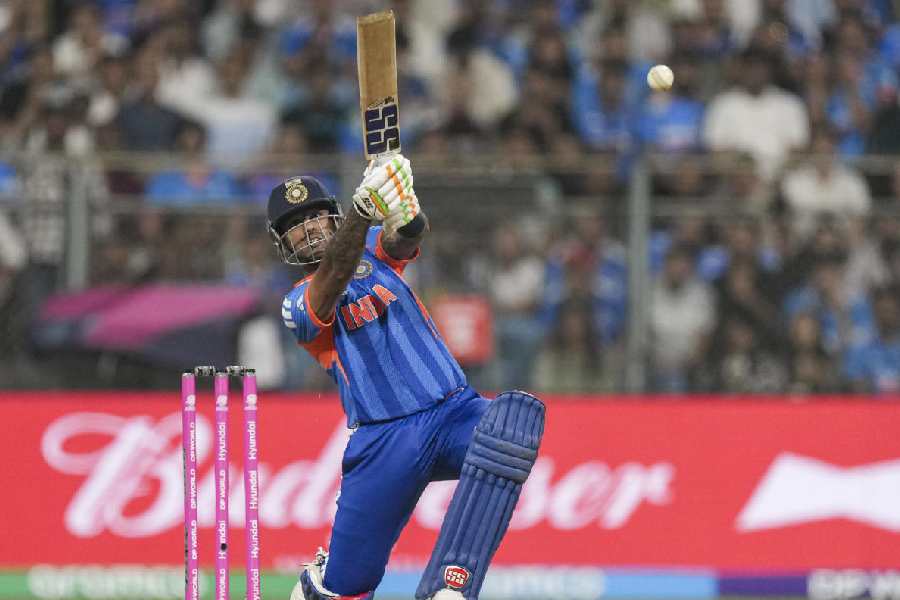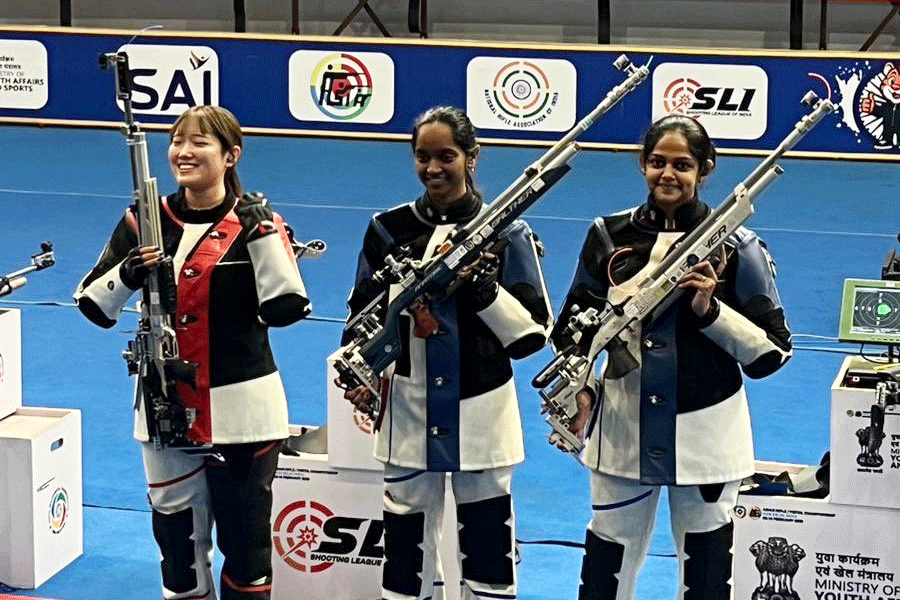None has been convicted for the alleged gang rape of Rajasthan social worker Bhanwari Devi in front of her husband in 1992 as punishment for stopping a child marriage in the family of a caste higher than hers.
Despite threats, she continues to spread awareness among women and was part of a two-month-long tour of rape survivors through 24 states to change people’s attitudes from shaming victims to supporting them.
Bhanwari told The Telegraph at a rally to conclude the Dignity March at Delhi’s Ramlila Maidan that she is happy that the MeToo campaign had put the focus back on what women like her have been struggling to achieve for almost three decades.
“Why should we suffer silently?” she asked. “My whole life has passed fighting for justice. The attitude of public authorities is still bad, society still ill-treats me. The difference now is that people are speaking out. Even after I die, brothers and sisters who have supported me will continue to fight for women like me. The government will have to bow down and grant our rights one day.”

Even after I die, brothers and sisters who have supported me will continue to fight for women like me. The government will have to bow down and grant our rights one day.
Bhanwari Devi
Now over 65, Bhanwari — a child bride herself — continues to work for Rajasthan’s women and child department as a “saathin”, or volunteer, for its outreach programmes in her village Bhateri, 34km from Jaipur.
“Four of the five men who raped me are dead. The fifth, Badri Gujjar, continues to hold the village in his grip,” Bhanwari said, clenching her fists.
“We are not invited to weddings even by our own community (Kumhaar Dalits). When I was gang-raped, I was working on the collector’s orders to end child marriage. If people had supported me, if officials and police had followed procedure, I would have got justice and life would have been different,” she said.
A PIL related to Bhanwari’s case led to the formulation of the Vishakha Guidelines against sexual harassment at the workplace.
Bhanwari’s alleged rapists were all acquitted on grounds such as the men would not have raped a woman they considered untouchable.
Ashif Shaikh, convener of the Rashtriya Garima Abhiyan that organised the tour, said that survivors and activists were surprised to note that the attitude of the public towards victims of sexual violence across states had not changed much.
“There are minor variations in conviction rates. But victim shaming is same in even cities like Bangalore or Hyderabad as it is in villages of Bihar…. In Rajasthan, no one came for our event from Bhanwari Devi’s village,” he said.
Shaikh added that Madhya Pradesh chief minister Kamal Nath and Chhattisgarh chief minister Bhupesh Baghel met the survivors who were part of the tour, and in Bihar and Jharkhand some ministers met them.
“Kamal Nathji promised to start special police units to investigate crimes against women and special courts for speedy trial,” Shaikh said.

We are not invited to weddings even by our own community (Kumhaar Dalits).... If people had supported me, if officials and police had followed procedure, I would have got justice and life would have been different.
Bhanwari Devi
At Friday’s event, attended by United Nations officials, eminent lawyers, police officers and actresses Chitrangada Singh and Richa Chadha, a National Network of Survivors was set up.
In similar events since December 20, the marchers have campaigned on nine demands — ending the shaming of victims, not supporting the perpetrators, rewarding those who back survivors, comprehensive rehabilitation, ending child prostitution, effectively implementing the Protection of Children from Sexual Offences Act, judicial reforms, stopping the two-finger test for rape and setting up at least one crisis centre in every district.
Jhansi’s Gita Devi, whose minor daughter was raped five times between 2014 and 2017, could not get justice after being duped into withdrawing the case because of lack of legal literacy.
“After this tour I feel that so many others are suffering silently like me. If we all had spoken up earlier, perhaps the situation would have been different. Society often says that survivors don’t come forward as if it proves that no crime took place. So here we are, speaking about the crimes in public,” she said.











